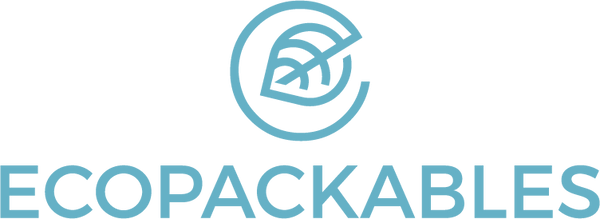Plastic Free July is more than just a movement, it’s a global initiative that challenges individuals and organizations to reduce their reliance on single-use plastics throughout the month of July (and beyond). For both consumers and businesses, it’s an opportunity to reassess habits, packaging strategies, and sustainability commitments.
In this article, we’ll explore what Plastic Free July means, the pros and cons of going plastic-free, practical paper packaging alternatives, and why recycled plastic remains a smart option for some.
What Plastic Free July Means for Consumers
For consumers, Plastic Free July is a personal commitment to reduce plastic usage in daily life. This may include:
-
Bringing reusable shopping bags and produce bags
-
Avoiding plastic bottles and opting for refillables
-
Choosing products with sustainable packaging
-
Raising awareness among peers and communities
It’s about small, consistent choices that add up—refusing that plastic straw, seeking out items with minimal or compostable packaging, or switching to solid toiletries.
Benefits for Consumers:
-
Reduced environmental impact
-
Healthier options (less exposure to microplastics)
-
Cost savings in the long run through reusables
-
Greater awareness of consumption patterns
What It Means for Businesses
For businesses, particularly those in retail, e-commerce, or manufacturing, Plastic Free July is both a challenge and a branding opportunity. Today’s consumers are increasingly eco-conscious, and demonstrating commitment to sustainability can influence purchasing behavior.
Businesses are encouraged to:
-
Audit their packaging materials
-
Test plastic-free alternatives
-
Educate customers on new eco initiatives
-
Use the month to pilot new sustainable offerings
Business Benefits:
-
Enhanced brand reputation and trust
-
Alignment with ESG and CSR goals
-
Competitive differentiation
-
Regulatory preparedness as bans on plastics expand
The Pros and Cons of Going Plastic-Free
While the benefits are compelling, transitioning away from plastic isn’t without trade-offs.
Pros:
-
Reduces environmental pollution and landfill waste
-
Demonstrates environmental leadership
-
Often biodegradable and recyclable options
-
Enhances customer satisfaction and loyalty
Cons:
-
Higher material and shipping costs (especially for paper)
-
Bulkier or heavier alternatives may increase emissions
Paper Packaging Alternatives
For businesses looking to reduce plastic usage in packaging, several paper-based options are gaining traction. Here are some of the most popular:
1. Kraft Mailers
-
Made from strong, recycled kraft paper
-
Suitable for soft goods, apparel, and documents
-
Recyclable and often compostable
2. Honeycomb Mailers
-
Paper-based cushioning alternative to bubble mailers
-
Durable and protective without plastic padding
-
Fully curbside recyclable
3. Ocea™ Bags
-
Stylish paper alternative for polybags
-
Water-resistant coatings available
-
Ideal for lifestyle and fashion brands
4. Paper Void Fill Options
-
Recycled tissue paper, kraft paper rolls, honeycomb paper, and spiral paper
-
Replace air pillows and foam inserts
-
Great for fragile and irregular-shaped items
5. Paper Retail Bags
-
A staple for brick-and-mortar stores
-
Different styles available
-
Easily brandable and recyclable
These options offer strong functionality, but they do come at a higher cost compared to traditional plastic—and they may not always be the best fit depending on product type or shipping needs.
When Recycled Plastic Makes Sense
If the cost of paper packaging is a barrier, or if your business is focused on carbon footprint reduction, recycled plastic can be a responsible middle ground.
Why Recycled Plastic is Still a Smart Option:
-
Requires less energy to produce than virgin plastic
-
Contributes to the circular economy by reusing existing material
-
Lighter than paper, reducing shipping emissions
-
Often cheaper than paper alternatives
-
Available in various forms (mailers, polybags, padded envelopes)
Incorporating recycled plastic can help businesses meet circular economy goals while maintaining cost efficiency and product protection—especially in industries like fashion and electronics where moisture resistance and durability are critical.
Final Thoughts
Plastic Free July is not about perfection—it’s about progress. Whether you're an individual trying to ditch plastic straws or a business rethinking your entire packaging line, the goal is the same: reduce harm and contribute to a healthier planet.
Businesses have the power to lead change by offering sustainable alternatives, educating consumers, and making intentional decisions. And when paper isn’t practical, responsibly sourced recycled plastic is still a valid, eco-conscious choice.
Small shifts, scaled across millions of people and products, make a big difference.

